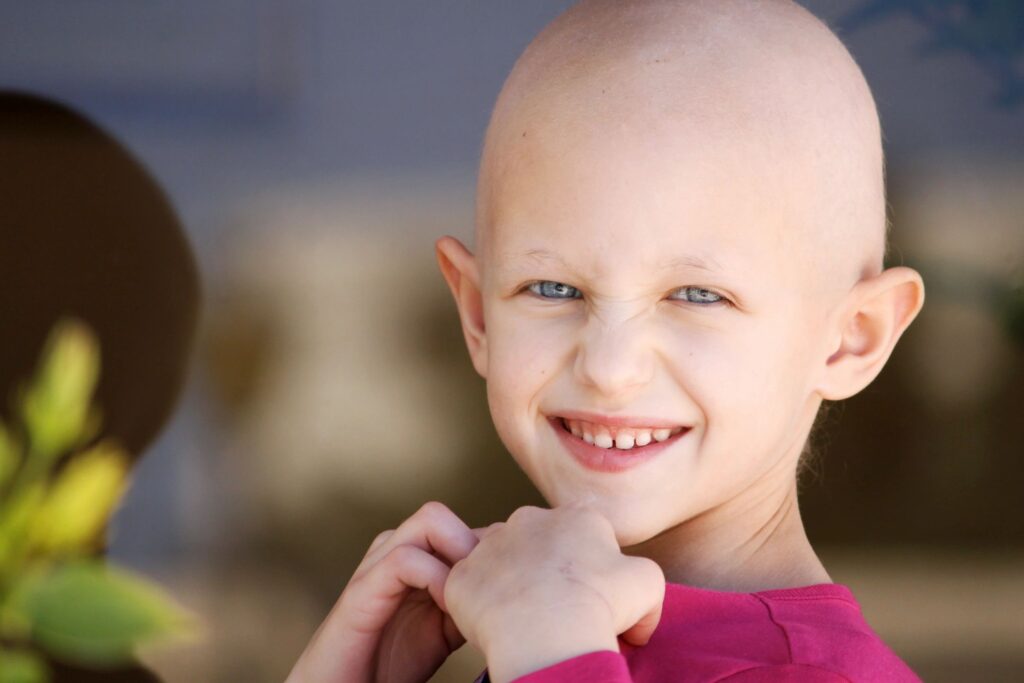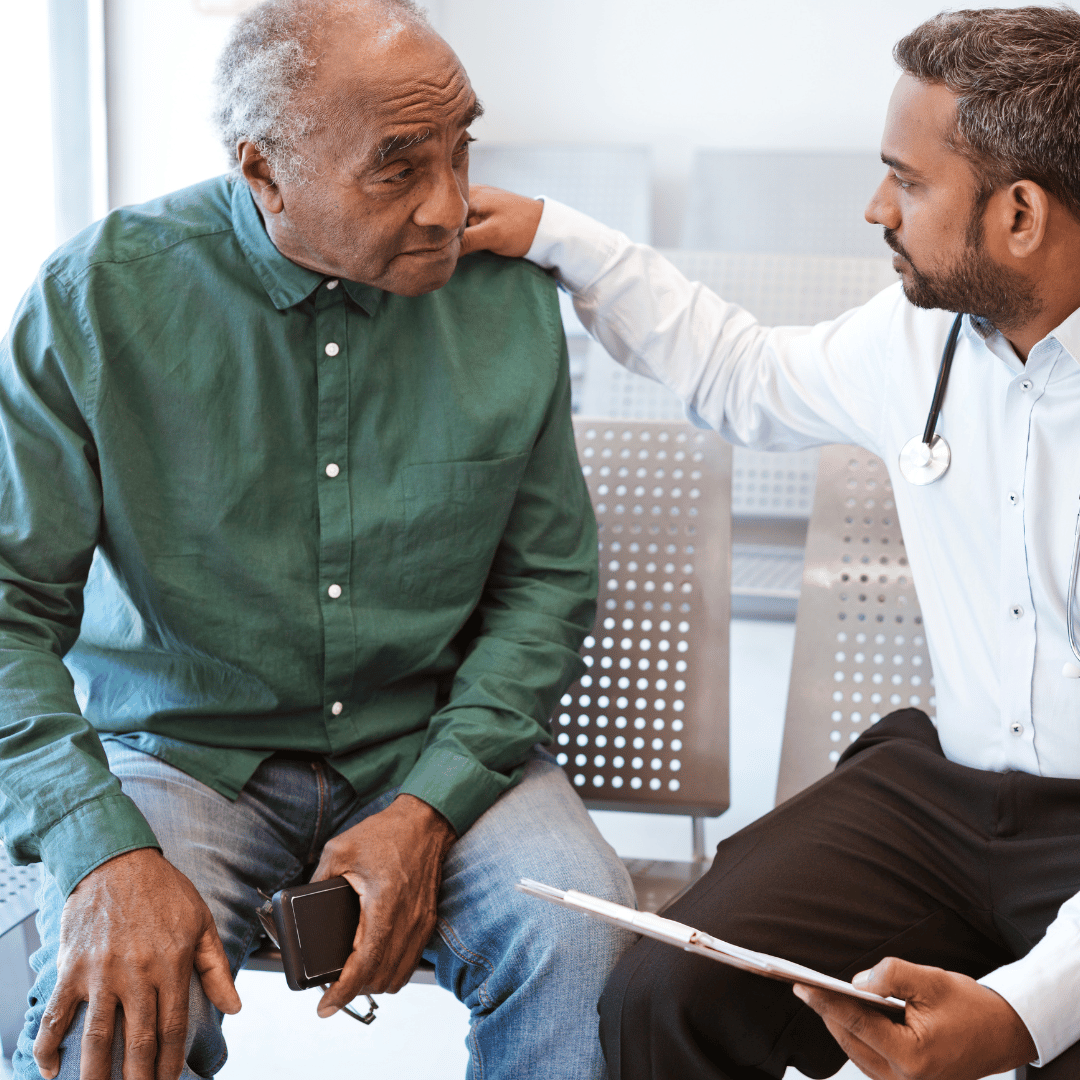The Emotional Rollercoaster
Receiving a tough diagnosis is a life-altering moment that can send shockwaves through every aspect of our being. Whether it’s a chronic illness, a mental health condition, or a serious medical issue, the news can leave us feeling overwhelmed, scared, and uncertain about the future. Coping with such a diagnosis is a journey fraught with emotional challenges, but it’s also an opportunity for growth, resilience, and finding new ways to thrive. In this blog, we’ll explore some strategies and insights to help navigate the emotional rollercoaster that comes with a tough diagnosis.

A tough diagnosis impacts more than just the person diagnosis. Friends, family, sisters, brothers, mother and fathers are all effected by life-altering news. That’s why we are grateful for the partnership we have with CURE throughout the year. They do so much to assist families. One of those is through offering counseling services to children and their families. We partner with CURE to provide this service in Savannah. It is our honor to do so.
Please take time to learn more about CURE and give in some way either your time, resources, or prayers.
Acknowledging Your Feelings
The first step in coping with a tough diagnosis is acknowledging and accepting your feelings. It’s normal to experience a wide range of emotions, including fear, anger, sadness, denial, and even relief. Allow yourself to feel whatever comes up without judgment or suppression. Journaling, talking to trusted friends or family members, or seeking support from a therapist can provide a safe outlet for expressing and processing your emotions.
Educate Yourself
Knowledge is power, especially when it comes to managing a tough diagnosis. Take the time to educate yourself about your condition, treatment options, and potential outcomes. This can help alleviate anxiety and empower you to make informed decisions about your health and well-being. However, be mindful of information overload and ensure that you’re accessing reliable sources such as reputable medical websites, healthcare professionals, or support groups.
Build a Support Network
Navigating a tough diagnosis can feel isolating, but you don’t have to face it alone. Surround yourself with a supportive network of friends, family members, healthcare professionals, and fellow patients who can offer emotional support, practical assistance, and understanding. Joining support groups or online communities related to your diagnosis can also provide a sense of belonging and camaraderie with others who are going through similar experiences.
Practice Self-Care

Self-care becomes even more crucial when dealing with a tough diagnosis. Make self-care a priority by nurturing your physical, emotional, and spiritual well-being. This can include getting enough rest, eating nourishing foods, engaging in gentle exercise, practicing mindfulness or meditation, and engaging in activities that bring you joy and fulfillment. Remember that self-care looks different for everyone, so find what works best for you and make it a non-negotiable part of your routine.
Communicate with Your Healthcare Team
Open and honest communication with your healthcare team is essential for effectively managing your diagnosis and treatment plan. Don’t hesitate to ask questions, seek clarification, or voice any concerns or preferences you may have. Your healthcare providers are there to support you and work collaboratively with you to optimize your care and improve your quality of life. Additionally, consider seeking a second opinion if you have doubts or want reassurance about your diagnosis and treatment options.
Just as with any life-changing event, seeking support from friends, family, or support groups can be immensely comforting.
Start Receiving Support From Therapists in Savannah, GA
Finally, don’t hesitate to seek professional support if you’re struggling to cope with you or a loved one’s diagnosis. A licensed therapist or counselor can provide guidance, validation, and coping strategies tailored to your unique needs and circumstances. Therapy can offer a safe space to explore your feelings, fears, and uncertainties, as well as develop practical skills for managing stress, anxiety, and depression. Our team would be honored to offer support from our Savannah, GA-based practice. You can start your therapy journey by giving us a call at 912.319.5552 or emailing us at [email protected].
Other Services Offered With Waters Edge Counseling
We understand that you may experience issues with more than one mental health concern at a time. This is why we are happy to offer support with a variety of mental health services. Our team is happy to offer support with multiple mental health services including online counseling, clinical supervision, coping after a cancer diagnosis, and SCAD student counseling. We are also happy to offer therapy for anxiety, depression, eating disorders, substance abuse, teen substance abuse, and counseling for men. In addition, we also offer counseling for teens, child counseling, family counseling, Christian counseling, grief counseling, and marriage counseling.
Please note: While this blog is designed to help people achieve their goals, the information within each post is not a substitute for therapy or medical advice given by a licensed professional.

